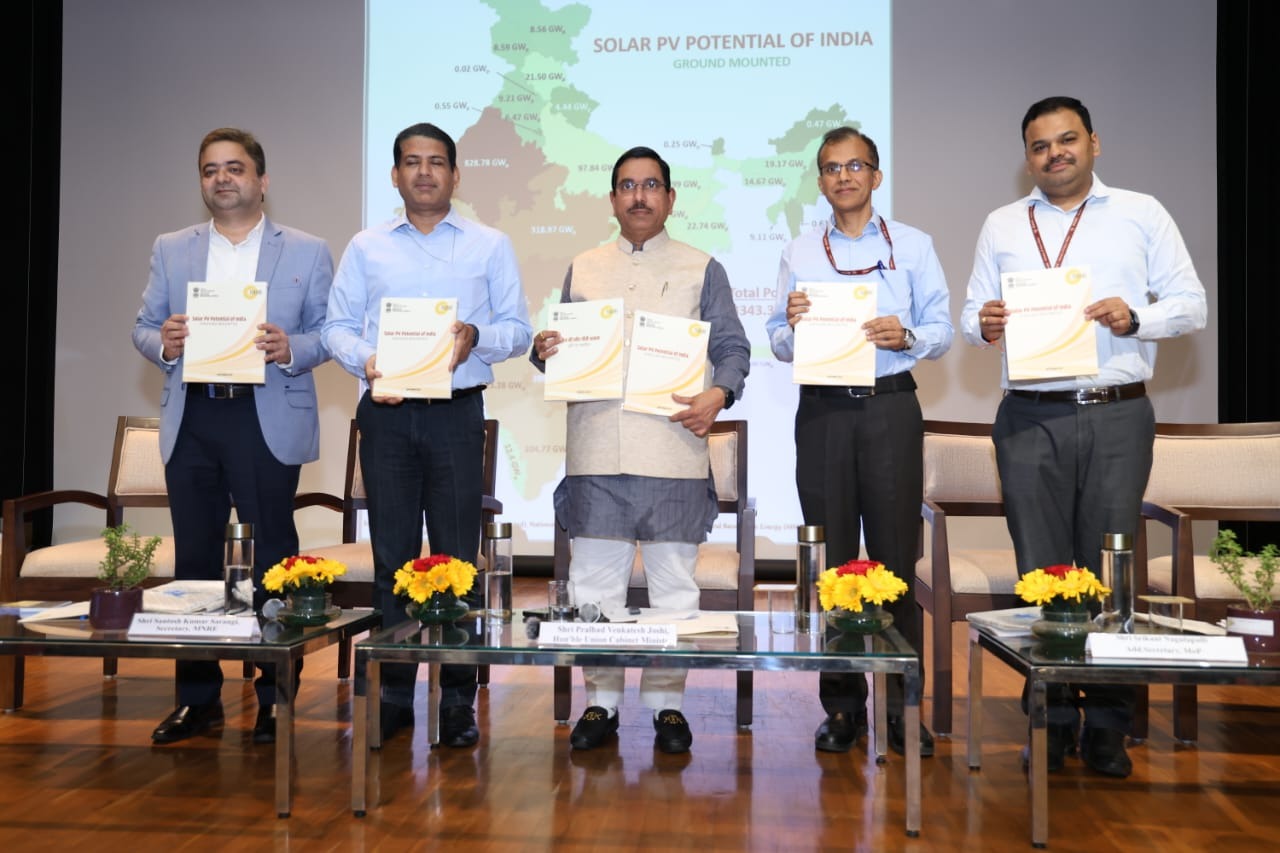Union Minister of New & Renewable Energy Pralhad Joshi on Tuesday inaugurated the first Training Programme on Solar Cell and Module Manufacturing at the National Institute of Solar Energy (NISE), Gurugram, while also releasing the updated Solar PV Potential Assessment of India (Ground-Mounted) report. The events were held under the aegis of Seva Parv, marking a significant milestone in India’s clean energy journey.
Addressing the gathering at MNRE headquarters, Joshi said, “India is writing a new chapter in clean energy history. These initiatives are decisive steps toward achieving 500 GW of non-fossil fuel capacity by 2030, attaining energy independence by 2047, and fulfilling our net-zero commitment by 2070.”
The Minister highlighted India’s remarkable progress, noting that the country has already crossed 250 GW of non-fossil installed electricity capacity, achieving the NDC target of 50% non-fossil share in installed capacity five years ahead of schedule. He also pointed out India’s strong domestic manufacturing base, with over 100 GW of solar PV module capacity and 20+ GW of annual wind turbine manufacturing capacity, reflecting the vision of Atmanirbhar Bharat.
Updated Solar PV Potential Assessment
The new report by NISE uses high-resolution geospatial analysis, satellite datasets, and refined land-use models to map India’s ground-mounted solar PV potential. Key findings include:
Feasible potential: ~3,343 GWp using just 6.69% of identified wastelands.
High potential is not limited to desert regions in Rajasthan and Gujarat; many other states also show significant capacity due to favorable solar geometry and land-use efficiency.
The assessment provides a policy-linked, investment-ready framework for project siting, infrastructure development, and private sector participation.
The report aligns with India’s Panchamrit commitments announced at COP26 and supports long-term goals of energy independence by 2047 and net-zero emissions by 2070.
Training Programme on Solar Cell and Module Manufacturing
The newly launched training programme at NISE aims to build technical capacity and develop a skilled workforce for India’s growing solar manufacturing sector. Participants will gain hands-on experience in advanced manufacturing processes, quality control, and global best practices, contributing to a self-reliant and globally competitive solar ecosystem.
The Minister also interacted with 28 women trainees from 15 nations participating in the International Training Programme on Solar Energy Technologies and Applications for Women, highlighting the role of Nari Shakti in India’s renewable energy journey.
Joshi emphasized that launching the report and the training programme during Seva Parv and Navratri reflects the spirit of collective service and empowerment, aligning with the government’s vision of Viksit Bharat.
“These initiatives provide the scientific roadmap, skilled manpower, and manufacturing strength required to propel India to the forefront of the global clean energy transition while ensuring energy security, economic growth, and environmental sustainability,” he said.














